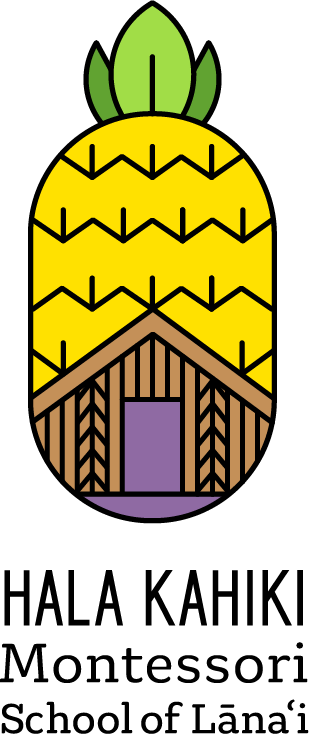Imagine being at work and having a co-worker walk up behind you and take the pen you were using right out of your hand. Then your boss says, “Share your pen, they just want to use it.” What would you think? Probably something along the lines of, “They just took it from me!” or “I was using that!”
Not surprisingly, this is probably what your child thinks when a peer takes away their work at school or a sibling takes away a toy at home. The concept of sharing is hard for young children to grasp; typically, they don’t even begin to understand or practice sharing until around age 6.

In the Toddler community and the younger ages in the Primary community, you will see children working and sitting independently with their work. In Montessori, this is done intentionally as Maria Montessori observed that children go through a “selfish” phase – wanting or needing to work alone. In this period, children are gaining and absorbing so much knowledge by working alone that we want to respect their concentration. They are focusing, paying attention to their body movements, figuring out how something works.
When interrupted, such as when a child takes away something another child is using, a parent might say, “Adrian, you need to share your work.” Or perhaps a parent is inclined to step in and take the item away from the child who is using it and give it to the child who wants to use it. In that moment, not only is a child’s learning lost, but unsettling emotions will surely follow.

So, how do we develop the idea of sharing without telling a child to share? It’s simple – by using the term and modeling the concept of “taking turns.” When you anticipate potential conflict over the use of a toy, for example, here is what you can do when another child approaches your child:
Acknowledge the child who wants the toy. “I see that you would like a turn with the puzzle. When Aileen is finished using it, you can have a turn next.” Although toddlers will need this phrase said for them, you are modeling appropriate language for both children. The older child will naturally develop this language the more it is modeled for them.
Validate feelings. When you notice the child who is waiting is getting impatient or upset, you can say, “It can be hard to wait for your turn. Would you like to do this while you wait?” (And offer an alternative activity.)
Let your child know that someone is waiting. “When you are finished with the puzzle, please let me know. Aileen would like to use it after you.” This is important, as your child is observing that you stopped the child from taking their toy (positive), but the child who is waiting will also get a chance to work with it when they are done (problem solving).
Allow them time. You want to respect a child's need to engage with the toy. Allow them this time and give them the chance to hand it over when they are done. This simple action gives the child control of the situation and allows them to process everything that just occurred. In the moment of handing it over, they are sharing without even knowing. The more they practice this, the more they will realize that toys and materials can be used by someone other than themselves.

Ultimately, we want children to develop respect, kindness, and patience. Turn-taking helps them develop the skills that make up these virtues while also laying a foundation for learning how to solve problems. We never want to force children to share, especially when they are unsure what sharing truly means. From an early age, promoting turn-taking while modeling the right behaviors and language helps children learn to advocate for themselves while also developing consideration for others.
About Hala Kahiki
Designed for children 18 months – 6 years, Hala Kahiki is the first and only authentic Montessori school on Lāna’i. Under the guiding influence of specially trained teachers, children work with multi-sensorial materials to help them learn to think critically and become well-rounded global citizens. We would love to partner with you to give your children the best-possible early childhood education; please let us know how we can help you achieve your goals for your child.




